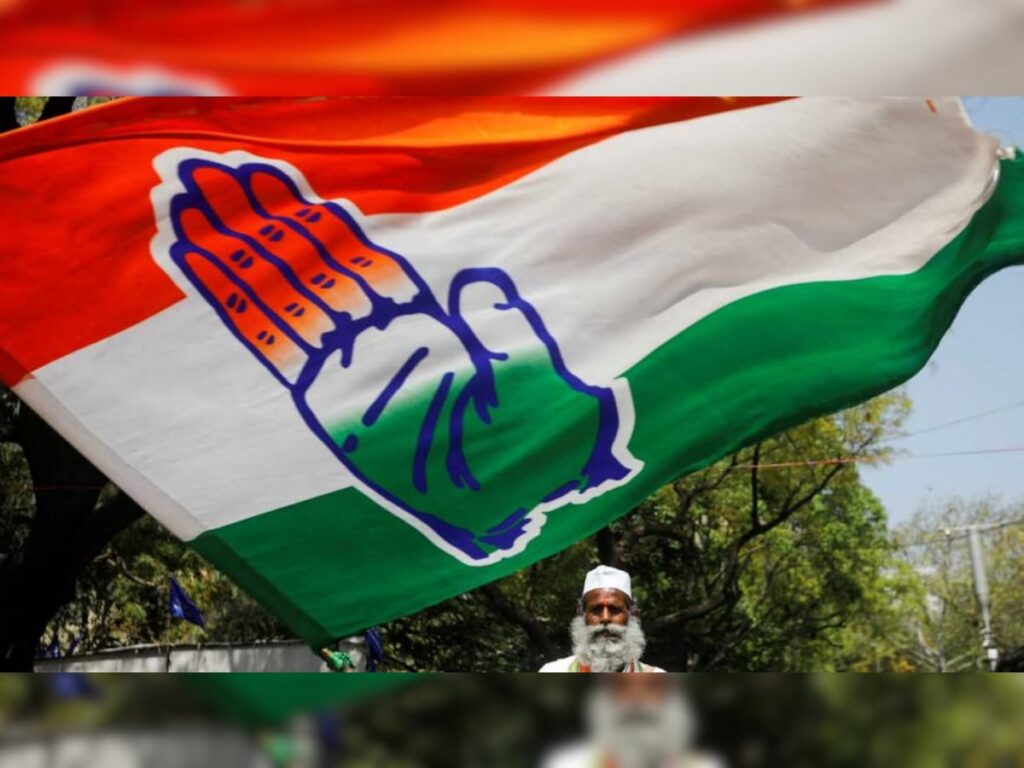Congress’s ‘Donate for Desh’ Recalls the Discomfort with Corporate Funding
S.N. Sahu
In his 2019 book Business and Politics in India, Christophe Jaffrelot said that Narendra Modi is perhaps the first Prime Minister to be anointed by the corporates. He argued that there are unmistakable linkages between the corporates which determine politics and the high political positions the ruling party leaders get in the structure of governance. In contrast to corporate-driven funding, the Congress on Monday launched its Donate for Desh online crowdfunding drive to engage in the 2024 electoral process. It appealed to people to donate Rs 138 or its multiples to the party in a transparent manner.
Tilak Swaraj Fund and Gandhi’s campaign in the early 1920s
Several such methods were adopted during the freedom struggle and were recommended in the 1964 report of the Santhanam Committee, which was set up to fight corruption. In 1920-21, during the freedom struggle, following the death of Lokmanya Bal Gangadhar Tilak, the Tilak Swaraj Fund was set up with the challenging goal of collecting Rs 1 crore from people to achieve swaraj or independence in one year. Mahatma Gandhi travelled across India to reach out to people. It was to be a tribute to Lokmanya Bal Gangadhar Tilak, who electrified the nation with his slogan, “Swaraj is my birth right and I shall have it.” The present leadership of the Congress has reached out to people very similarly. While vigorously campaigning for funds for the Tilak Swaraj Fund, Gandhi found that large numbers of the poor and downtrodden paid small sums, worth less than 25 paise.
With characteristic brilliance, Gandhi said that the transparency and honesty associated with the collection of Rs 1 crore and its utilisation would define patriotism and display probity and integrity in expending public money. That observation about money is so intensely relevant for our time, when anonymous electoral bonds introduced by the Modi regime have paved the way for massive collections for the BJP, as compared to Opposition parties, without disclosing the sources of such funding and its utilisation. The online crowdfunding campaign sounds so refreshing because it draws inspiration from the method adopted for mobilising resources for the Tilak Swaraj Fund in the early 1920s.
Observations of Santhanam Committee in 1964
The Donate for Desh campaign is also evocative of one of the key observations of the Santhanam Committee Report of 1964, which was set up to prevent corruption. It noted that “the public belief in the prevalence of corruption at high political levels has been strengthened by the manner in which funds are collected by political parties, especially at the time of elections.” It very sharply observed that “such suspicions attach not only to the ruling party but to all parties, as often the Opposition can also support private vested interests as well as members of the government party.” “It is, therefore,” the Committee added, “essential that the conduct of political parties should be regulated in this matter by strict principles in relation to collection of funds and electioneering.” Acknowledging that “political parties cannot be run and elections cannot be fought without large funds,” it stressed that “these funds should come openly from the supporters or sympathisers of the parties concerned.”
Then the Santhanam Committee very sensitively observed, “If even one family in three pays one rupee a year to a political party, the total annual contribution will be more than what is needed for all legitimate purposes of all political parties in India.” While regretting that political parties were unwilling to make small collections on a wide basis and resorted to shortcuts through large donations, the Committee asserted that it “constitutes the major source of corruption and even more of suspicion of corruption”.
In juxtaposing the Donate for Desh campaign of the Congress with the campaign for the Tilak Swaraj Fund of 1920s and the invaluable observations of Santhanam Committee of 1964, a clear lesson is learnt: to appreciate the point that to rid public life of corruption, the non-transparent method of collection of money through the electoral bond scheme must be dispensed with.
Affinity of people with political party
By reaching out to people for donating money for the Congress, the party has set an example, remaining rooted in the larger collective life and democratic space at the centre of which remain “We the People” or in the poetic words of Tagore “Jana Gana Mana” who ascribed them the status of “Adhinayak” in our national anthem.
During the Bharat Jodo Yatra launched by the Congress under the leadership of Rahul Gandhi, it was suggested to those spearheading it to appeal to people to donate the very modest sum of Rs 10 for the cause of the party. It was an eminently doable proposition which vast millions would have happily accepted. The spirit embodied in such methods are reflected in the Donate for Desh campaign, which constitutes a refreshing method of ridding the politics and political and electoral process of money from corporates, who often shape the policies of the regimes to which they contribute huge sums. The tag of crony capitalism is now defining the current political regime at the Centre. It represents a huge challenge, and the method adopted by Congress constitutes a small but decisive step in this direction.
(S.N. Sahu served as Officer on Special Duty to President of India, K.R. Narayanan. Courtesy: The Wire.)
❈ ❈ ❈
Over 20,000 Attempts to Hack Crowd-Funding Site in Past 2 Days, Claims Congress
Shemin Joy
Launched two days ago, Congress on Wednesday claimed its donation website encountered 20,400 cyber attacks attempting to steal data or slow the site down but managed to collect Rs 2.81 crore from over 1.13 lakh donors.
Sources said of the total 1,13,713 donors till 9 AM on Wednesday, only 32 donated more than Rs one lakh and it included party chief Mallikarjun Kharge, Rahul Gandhi, Ashok Gehlot, Jairam Ramesh and Pawan Khera while 612 donated more than Rs 13,800.
Of the 2.81 crore, the maximum came from Maharashtra (Rs 56 lakh) followed by Rajasthan (Rs 26 lakh), Delhi (Rs 20 lakh), Uttar Pradesh (Rs 19 lakh) and Karnataka (Rs 18 lakh).
Speaking on the trend, a senior leader said while Maharashtra may top the list of quantum of donations, there were a large number of donors from Bihar though their contribution was on lesser denominations. “It shows a large number of people are willing to associate with us,” he said.
Sources said the donation handle www.donateinc.in saw 1.2 crore people visiting it in 48 hours but the “disturbing trend” was that there were 20,400 cyber attacks. Of this, they claimed, 1,340 were related to attempts to steal data from the site. The others are mainly related to slowing down the site.
They said they had anticipated such attacks and had built strong firewalls to prevent any attempts to compromise the sites.
An analysis of donations showed that 81 per cent donors preferred the UPI route to make the payment while 7.95 per cent used credit cards, 6.34 per cent debit cards, 4.78 per cent net banking and 0.02 per cent RTGS-NEFT.
Sources said party treasurer Ajay Maken has devised a three-prong strategy to attract funds in the first phase. Observers will be sent to states to train leaders before they start the door-to-door campaign on December 28.
At Congress rallies, sources said, QR codes will be displayed so that people coming for such programmes can donate. The party is also mulling collecting funds through merchandising where they could see T-shirts signed by leaders like Rahul Gandhi, customised caps and other items.
Sources said the donation drive also helps the party to connect with its supporters, as the data collected would be shared with state units who could reach out to them.
(Courtesy: The Deccan Herald.)




